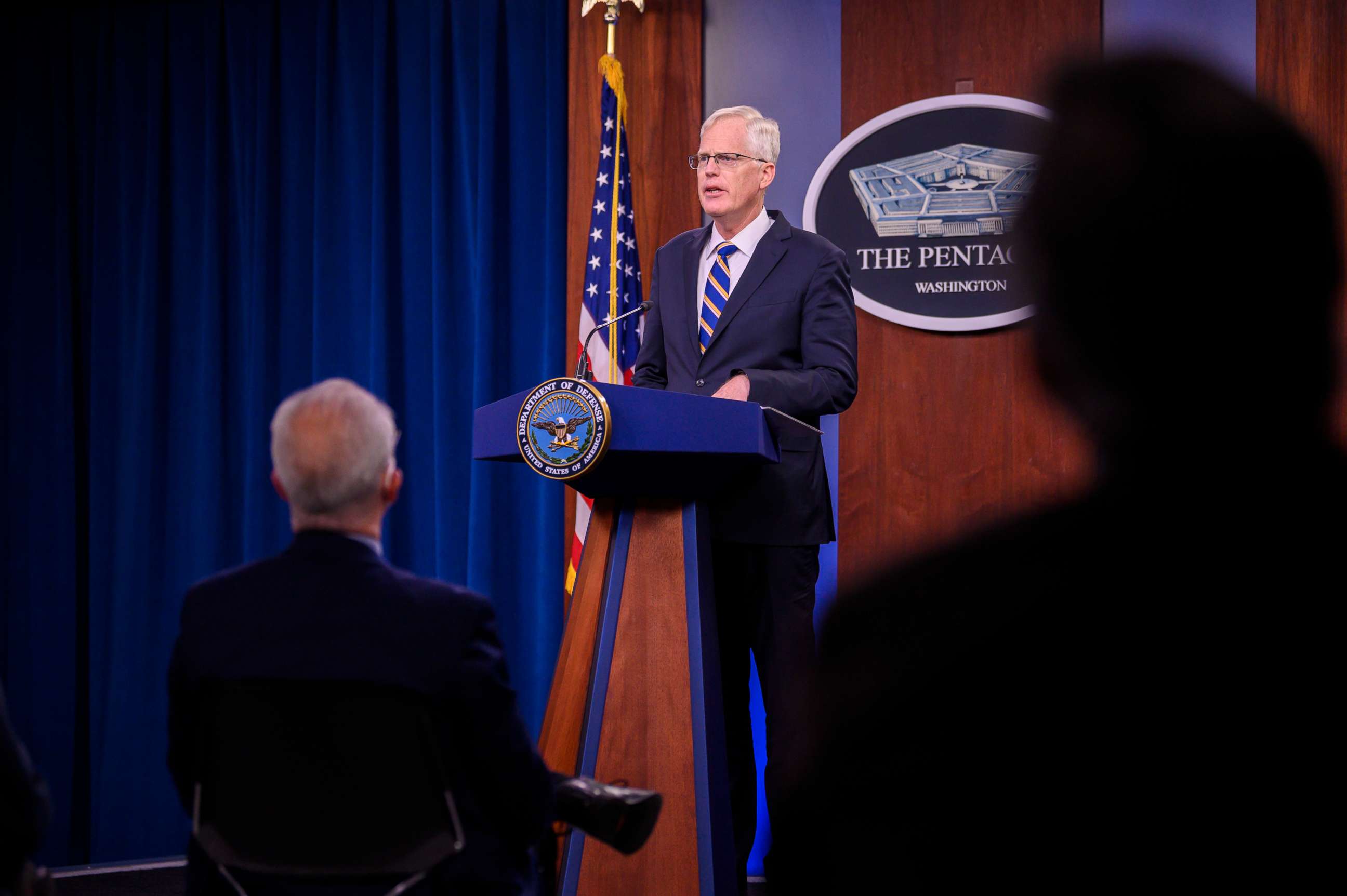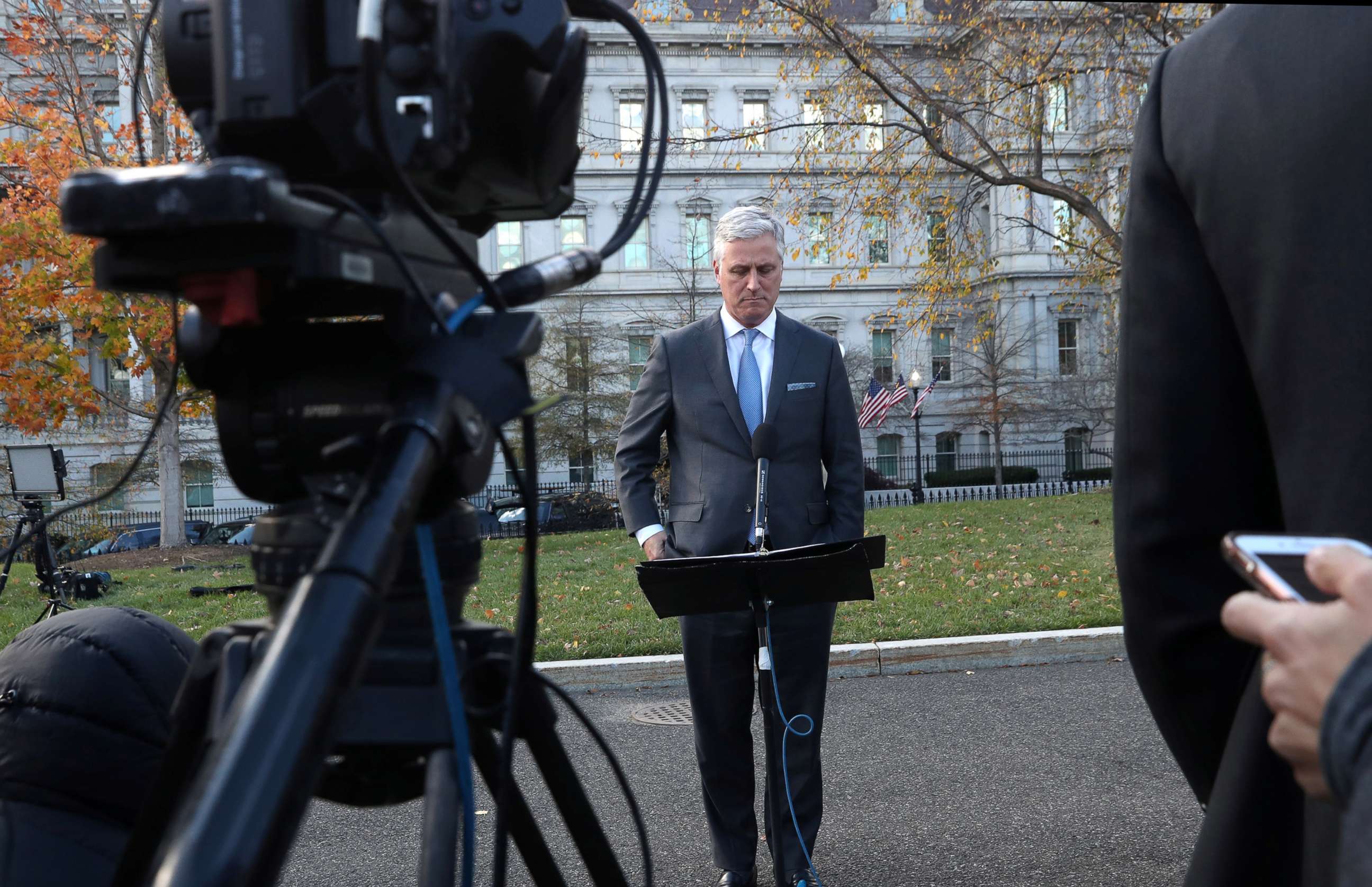Pentagon announces troop reductions in Afghanistan and Iraq
2,500 American troops will remain in each country by mid-January.
The U.S. troop presence in Afghanistan and Iraq will be reduced to 2,500 in each country by mid-January, acting Defense Secretary Christopher Miller announced on Tuesday.
Miller made the announcement in remarks to Pentagon reporters that highlighted the next step in what he called "President Trump's plan to bring the wars in Afghanistan and Iraq to a successful and responsible conclusion and to bring our brave service members home."
He said that President Donald Trump made the decision to draw down troops in both countries in consultation with his top national security officials and that it did not amount to a change in policy.

The new drawdowns continue this year's trend of significant troop reductions in each country as American troop levels in Afghanistan dropped from 13,000 at the start of the year to the current level of 4,500. This year's troop reduction in Iraq, the first in five years, lowered the troop count in Iraq from 5,660 to 3,000 in October.
Miller said Tuesday that he was announcing the implementation of Trump's "orders to continue our repositioning of forces from those two countries."
Speaking of the conflict in Afghanistan, Miller said that "with the blessings of providence in the coming year, we will finish this generational war and bring our men and women home."
The decision to go down to 2,500 troops by mid-January in Afghanistan will make feasible the pullout of all American troops in Afghanistan by May 2021, as outlined in the U.S.-Taliban peace deal.
But that full withdrawal depended on security conditions on the ground in Afghanistan and the Taliban's adherence to not attack U.S. forces.
Robert O'Brien, the national security adviser, later told White House reporters that the president campaigned "on a promise to put a stop to America's endless wars."
"Today, as just announced at the Pentagon, President Trump is keeping that promise," said O'Brien who added that the president hoped that by May the remaining troops in Iraq and Afghanistan "will all come home."

In mid-October O'Brien had hinted in public remarks that a U.S. troop reduction to 2,500 in Afghanistan would take place by mid-January. But in a rare exchange of criticism among top national security officials, Gen. Mark Milley, the chairman of the Joint Chiefs of Staff labeled the numbers "speculation" and said no new orders had been received at the Pentagon.
The orders to bring down the number of troops was met with bipartisan criticism on Capitol Hill, many of whom labeled it "a mistake"including the top Republican in the Senate.
"I think a precipitous drawdown in either Afghanistan or Iraq would be "a mistake," warned Senate Majority Leader Mitch McConnell.
'This is the wrong thing to do," Sen. Tammy Duckworth, D-Ill., an Iraq combat veteran, said. "We want our troops home, but let's not bring them home in body bags."
NATO Secretary General Jens Stoltenberg said there's a difficult decision ahead.
"We have been in Afghanistan for almost 20 years, and no NATO ally wants to stay any longer than necessary," he said. "But at the same time, the price for leaving too soon or in an uncoordinated way could be very high."
Ongoing efforts to free American hostage Mark Frerichs are also in doubt.
“We want to see U.S. troops come home, but my brother is a Navy veteran and the same Taliban we have been negotiating with have had him since Jan. 31," said Frerichs' sister, Charlene Cakora. "We are praying President Trump will not leave him behind.”
U.S. military leaders had previously said publicly that it was not enough for the Taliban to not attack American forces while significantly increasing attacks against Afghan security forces.
Based on those conditions they said they would be cautious in recommending a further drawdown.
But it appears the definition of what those conditions are have been changed, adjusting the lens through which senior military leaders assessed the situation on the ground.
According to a senior defense official the conditions used to measure the drawdown are now based on whether national security would be threatened by a reduction in Afghanistan to 2,500 troops.
"We do not feel that it is," said the official.
The other condition was, "can we maintain a force posture in Afghanistan that permits us to carry out our mission with our allies and partners."
ABC News' James Gordon Meek contributed to this report.



